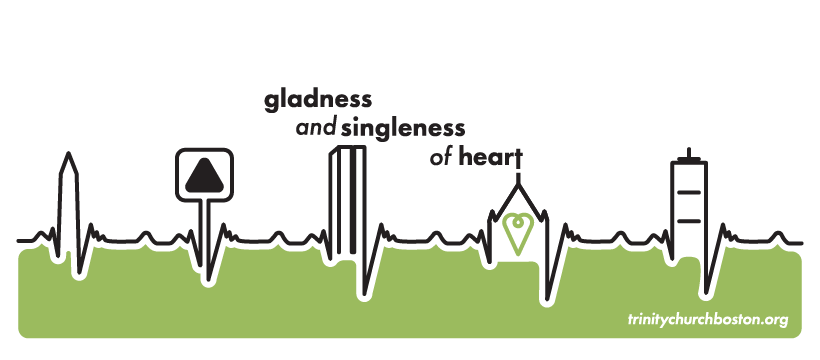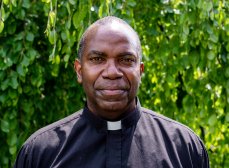
Dear Trinity Boston,
I pray I find you well.
I look forward to being with you this Sunday! Already, you make me feel at home with your messages and communication. Thank you! As we approach our life together, a few thoughts may be in order to explain a theology that I have been working on from the beginning of my professional vocation as a theologian. I name this as Ubuntu theology which our Episcopal General Convention designated for a triennium study that began in 2009 (See the Report to the 76th General Convention). At that time the Episcopal Church used my book, Ubuntu: I in You and You in Me specifically for such study. In short, Ubuntu is explained through the proverb: I am because you are; and because you are, I am.
I hope we can practice Ubuntu which I pray will be effective among our life together. This process is called Ubuntu Circles. The concept of Ubuntu is important because it helps us see the deeper repercussions of sins like racism. In Ubuntu Circles Training, spiritual communities learn how to navigate and overcome the exponential effects of racism that short circuit the symmetry of unity and diversity represented in the creation of the church.
A theology of Ubuntu combines Christian spirituality and justice to go deeper than the biological definitions of race in order to show how racism as a system of power reinforces the chimerical (or sinful) dynamic of keeping a privileged, particular people in control of interpreting human differences. Hence, racism produces the pernicious outcome of privilege in which subservient social groups are beholden to the power and resources of the more dominant social group.
Instead of the systems of power in racism, Ubuntu Circles foster restorative justice with the backdrop of the Holy Spirit’s power of Pentecost by educating participants with a common spiritual framework that can become the basis for a unified social movement that not only mitigates racism but participates in how the Holy Spirit is healing the world. From my life with Archbishop Desmond Tutu, I have learned the difficult lesson that I cannot change people’s minds but can only invite a change of heart; and I can only invite a change of heart by changing my own with God’s help.
I pray that we will practice this Ubuntu methodology in our ministry gatherings and discussions as Trinity Church in the City of Boston. I pray that our awareness and social action to facilitate God’s reign on earth as it is in heaven help us to do more together than we could ever do apart. I also pray for wisdom which is a virtue that cannot be taught but only caught. We catch wisdom communally when we bless what the Holy Spirit is already doing among us; fan that flame of the Spirit’s work among us and never blaspheme the symmetrical miracle of unity and diversity occurring at the same time.
I pray that we can continue to develop our internal capacity and methodology for change and connect our change to the healing of the nations. John of Patmos explains all of this through his vision of looking past a city street and seeing a river.
On either side of the river is the tree of life with its twelve kinds of fruit, producing its fruit each month; and the leaves of the tree are for the healing of the nations (Revelation 22.2).
I pray that John’s vision of the city includes Boston which of course also has a sizeable river; and, the Greek word “nations” that John uses is the same as “ethnicities”. It would be anachronistic to put the concept of nation state in John’s framework. So, John envisions “the healing of the ethnicities”. It seems to me that John was on to something that indeed involves us at Trinity; namely, that the healing of the ethnicities requires resources deeply rooted and well-nourished. Our capacity to be deeply rooted and well-nourished leads to the wisdom of a previous Archbishop of Canterbury, William Temple, who said, “The Church is the only organization that exists solely for the benefit of non-members,” (See the “Letter from the Archbishop of the West Indies’ in the journal, Theology (1956), vol. 59).
Enough for now.
See you Sunday,
The Very Rev. Dr. Michael Battle
Trinity Church Theologian-In-Community


